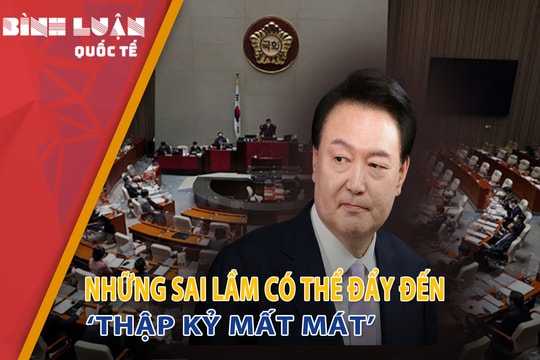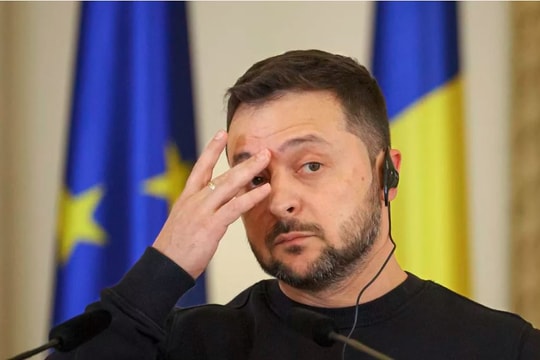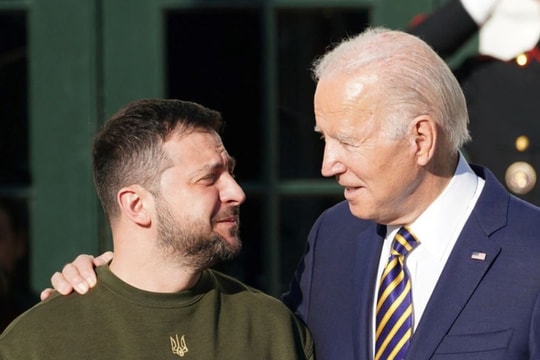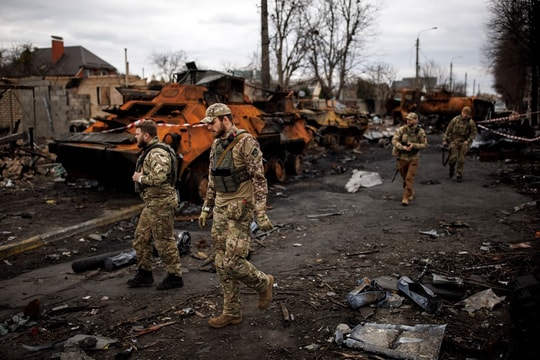Venezuela's politics are in turmoil again
(Baonghean) - The long-standing political crisis in Venezuela was pushed to a new level over the weekend with a struggle for legislative power between the Supreme Court and the National Assembly.
Confrontation between Court and Parliament
The event marking a new turbulence in Venezuela's political scene was the Supreme Court of Venezuela on March 30, taking legislative power upon itself after issuing a ruling affirming that the country's National Assembly - currently controlled by the opposition - had acted in contempt of court in its efforts to overthrow President Nicolas Maduro. This move gave rise to serious disagreements between the Attorney General and the highest judicial body of this South American country. While Attorney General Luisa Ortega Diaz said that this action violated the Constitution, the Supreme Court, on the contrary, affirmed that its decision was to protect the constitutional order.
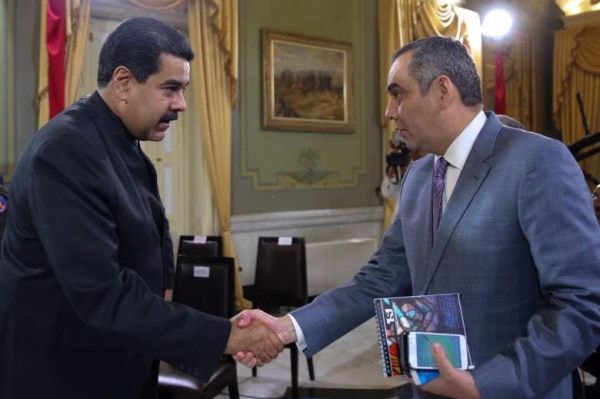 |
| President Nicolas Maduro (left) and Supreme Court Chief Justice Maikel Moreno during a meeting on March 31. Photo: Reuters |
In fact, the power struggle between the Supreme Court and the National Assembly has been simmering for more than a year, since the Venezuelan opposition took control of the National Assembly in late 2015. That was when the unprecedented economic crisis in the “oil nation” of Venezuela caused President Maduro’s approval rating to plummet. Since then, the Venezuelan Supreme Court has overturned almost all of the National Assembly’s decisions, most notably superseding the National Assembly by issuing a ruling allowing Maduro to establish oil and gas joint ventures without the approval of the National Assembly.
Most recently, two days before issuing its ruling on the legislative power of the National Assembly, the Supreme Court also invalidated the National Assembly's decision to support the Organization of American States (OAS) application of the Democratic Charter against Venezuela, arguing that the document was "unconstitutional".
The Supreme Court’s seizure of legislative powers from the National Assembly threatens to send a shockwave through Venezuela’s already-protracted crisis, and President Nicolas Maduro knows it. That’s why he quickly convened a meeting of the National Defense Council, the highest advisory body on matters related to the defense of the country’s sovereignty and territorial integrity.
He called on the people to be vigilant and not let forces take advantage of the situation to carry out a coup. President Maduro also affirmed that the Supreme Court's actions were aimed at "restraint against the illegal actions of the National Assembly", while ensuring that the Constitution, civil, political and human rights in Venezuela remain.respected
"Internal power, external attack"
Despite Venezuelan President Nicolas Maduro’s efforts to defend the Supreme Court’s actions, the opposition has been fiercely opposed. Gaining control of the National Assembly remains a powerful card for the opposition in its long-term negotiations with the government on four points: respect for the rule of law and government power, human rights and reconciliation, socio-economic issues, and a timetable for holding general elections.
Therefore, the opposition certainly cannot let their efforts go down the drain by losing their legislative power to the Court, so they have planned to organize large-scale street protests to protest the Supreme Court's decision. The opposition's determination is "fueled" by the opposition of many countries with a voice in the region. A series of countries such as the US, Argentina, Brazil, Peru... have called on Venezuela to allow the National Assembly to exercise legislative power, dialogue between parties to restore institutional order, establish democratic order and hold elections as soon as possible.
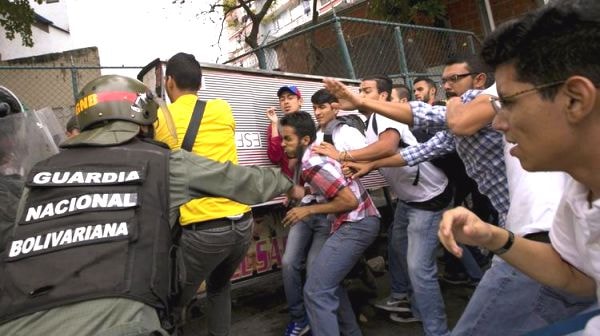 |
| A group of students protest outside the Supreme Court in Caracas, the capital of Venezuela. Photo: AP |
Under pressure from the international community, on April 1, the Venezuelan Supreme Court had to withdraw its declaration of the National Assembly’s seizure of legislative power. But according to analysts, although this new “trigger” has been defused, it has only solved the tip of the iceberg. The root of Venezuela’s current political crisis is the economic crisis that has lasted for more than 3 years in this country.
It is worth noting that according to experts' forecasts, Venezuela's economic prospects in 2017 are not much brighter than in 2016, with an expected decline of over 10%. Economic stagnation will continue to be a weakness of President Maduro's administration for the opposition to exploit in order to force him to leave or hold early elections. Meanwhile, the President's supporters are trying to maintain his term until January 2019. With the confrontation of interests and goals between factions, when this "fuse" is defused, another "fuse" will quickly arise, threatening the stability of Venezuela.
Currently, the government of President Nicolas Maduro is still the legitimate government in Venezuela recognized by the international community. Therefore, the responsibility on Mr. Maduro's shoulders at this time is very large. According to analysts, to break the current political deadlock, the government of Mr. Nicolas Maduro needs to face the demands for changes in political structure as well as economic management.
However, how to change will be a problem that the political forces in Venezuela themselves must find out in negotiations mediated by the Vatican and the Union of South American Nations (UNASUR), because no one can decide the future of Venezuela on behalf of the Venezuelan people.
Thuy Ngoc
| RELATED NEWS |
|---|


